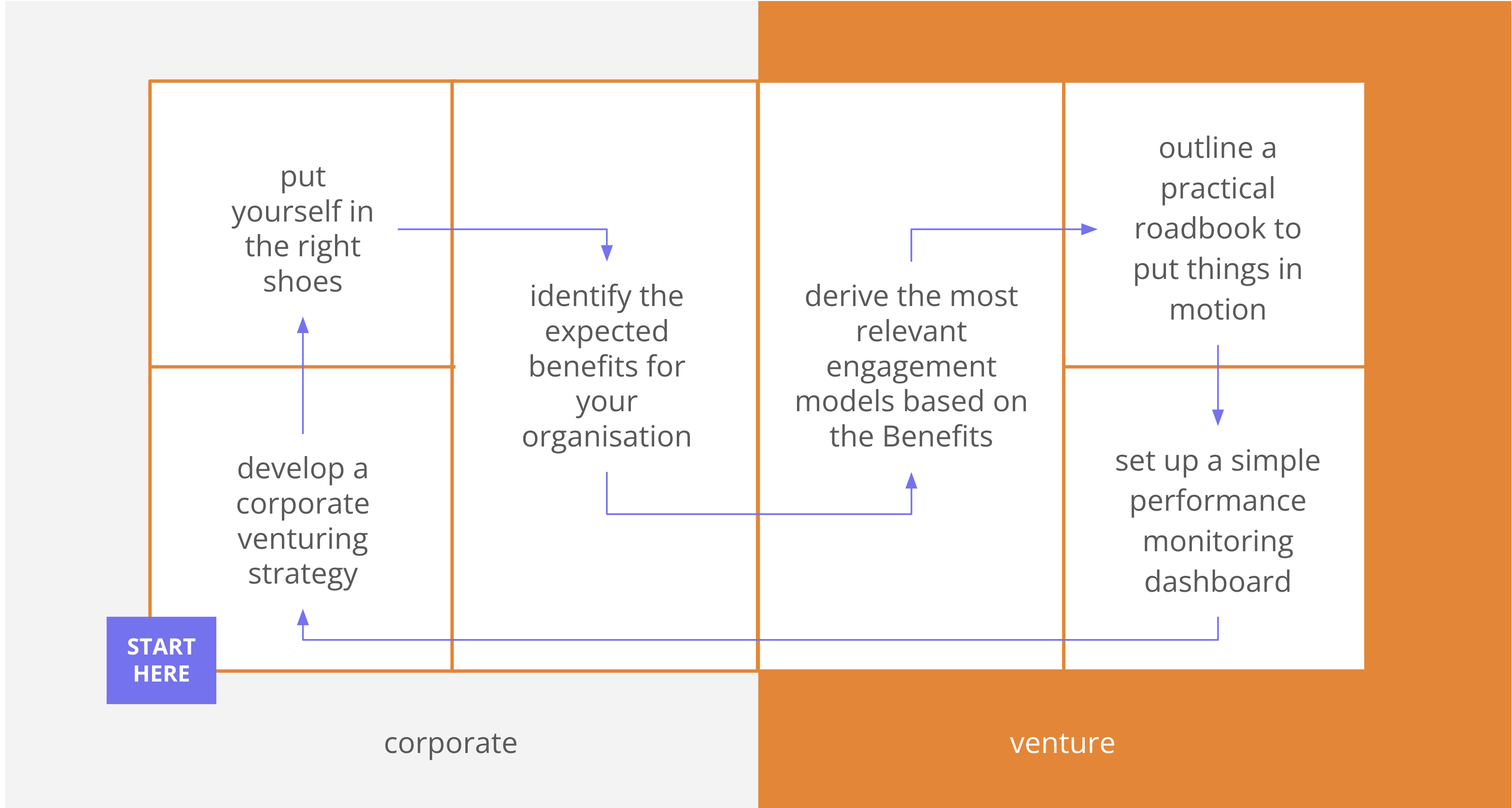corporate venturing framework. corporate venturing framework. corporate venturing framework. corporate venturing framework. corporate venturing framework. corporate venturing framework. corporate venturing framework. corporate venturing framework. corporate venturing framework. corporate venturing framework. corporate venturing framework. corporate venturing framework. corporate venturing framework. corporate venturing framework. corporate venturing framework. corporate venturing framework. corporate venturing framework.
For many individuals, the concept of Corporate Venturing can be a blend of various elements such as investment funds, accelerators, innovation labs, hackathons, and startup competitions. However, it goes beyond mere terminology, encompassing the collaborative efforts between large corporations and startups, aimed at driving tangible business innovation. These efforts are spearheaded by experts within organisations (R&D, business development teams, product management divisions, and more). The demand for external assistance in these domains is poised to rise.
People working in large corporations admitted that the pace of these transformative changes renders internal management unfeasible. Consequently, the integration of startups becomes inevitable. However, the current corporate structure often lacks the flexibility needed to facilitate such collaborations, with professionals encountering obstacles like limited resources, inertia, mistrust, and protective mindsets.
But do not worry, Laurent has got you covered. He addressed this challenge by developing a user-friendly framework. The aim is to support individuals contemplating collaboration with startups, mitigate risks, enhance efficiency, and facilitate internal scalability.
500 million entrepreneurs are active worldwide. That’s nearly half a billion individuals! Every three seconds, a new business emerges on the global stage. While not all of these ventures qualify as startups or innovative endeavours, they highlight the deeply ingrained entrepreneurial spirit. Among this diverse landscape, an estimated 1.35 million ventures leverage technology to fuel their growth.
The vision is clear. Startups are emerging as pivotal players, reshaping industries and challenging traditional business models. Fueled by innovation, agility, and a relentless drive for disruption, they are capturing attention and investment like never before. Their nimble nature allows them to swiftly respond to market demands, harness emerging technologies, and capitalise on untapped opportunities. Moreover, the rise of digital platforms and the democratisation of information have lowered barriers to entry, empowering aspiring entrepreneurs worldwide to launch and scale their ventures.
On the other hand, corporates are increasingly recognised as potent catalysts for startup innovation. Leveraging their resources, market reach, and industry expertise, established companies are forging strategic partnerships with startups to drive mutual growth and innovation. By providing access to capital, mentorship, and distribution channels, corporates empower startups to accelerate their development and scale their solutions. Simultaneously, startups inject fresh perspectives, agile methodologies, and cutting-edge technologies into corporate environments, catalysing organisational change and fostering a culture of innovation.
This symbiotic relationship not only fuels the evolution of traditional industries but also cultivates a dynamic ecosystem where collaboration and co-creation thrive, ultimately driving greater value for both corporates and startups alike.
Corporate Venturing stands as not only beneficial but also imperative for the advancement of our world and the resolution of significant challenges. Serving as a crucial phase in the innovation journey, the collaboration between startups and established industry titans represents the fusion necessary to ignite transformative change. However, the challenge lies in how these industry giants execute their Corporate Venturing endeavours. Many find themselves hindered by outdated methodologies, tools, and approaches, or in some cases, lack any structured methodology altogether.

Innovation professionals often go back to conventional project management frameworks designed for internal processes, such as dependencies and waterfall methods, which prove ill-suited for the dynamic nature of startups. Attempting to apply corporate-grade procedures to manage projects involving agile, fast-moving entities often leads to failure. While these professionals may lack alternative methodological references, the alarming failure rate, mirroring that of M&A operations, suggests a systemic issue within Corporate Venturing practices.

The Corporate Venturing Framework is threefold:
Considering the rapidly changing market context dominated by millions and millions of disruptive startups, corporate venturing is critical for accelerating corporate innovation and financial success. Here is why:
1. Everyone wants to be the first to seize new growth possibilities. This can be difficult for companies with rigid regulations and bureaucracies.
By investing in independent ventures, corporations can avoid some of the obstacles related to draining rules and administration processes. This allows companies to efficiently experiment with new technologies and business models, just as startups do.
2. Big corporations find it difficult to test out new technology. On the other hand, startups are known for being able to access, use, and create next-generation technologies.
3. Customers are placing a higher value on companies that provide memorable experiences.
Startups are excellent for trying out new consumer experiences without jeopardizing your brand’s reputation. Because of their modest size and flexibility, they can quickly test new growth marketing, branding, and selling techniques to see what works and what doesn’t.
4. Large corporations may find it challenging to engage with and reach younger generations. It’s all about convenient digital services, individualised experiences, and a story that represents the customer’s values these days. With innovative business models, communications, and digital services, corporate venturing can help overcome the age gap.
5. User interviews and online surveys are just a few of the approaches utilised to evaluate new concepts. The problem is that many companies have not yet optimised their strategy and are still traditionally conducting R&D. This can be both costly and ineffective.
Corporate ventures are an excellent opportunity to put fresh ideas and concepts to the test. They act as sounding boards for new technologies, products, and services, testing them in limited, contained settings.
Discover a list of 100 ways startups can transform any organisation and 50 startup engagement models. These two lists are articulated around a canvas that will help innovation professionals unfold the blueprint of their open innovation activities: a clear strategy, smart objectives, relevant initiatives, a pragmatic road book and a versatile performance monitoring dashboard. Get your copy now!